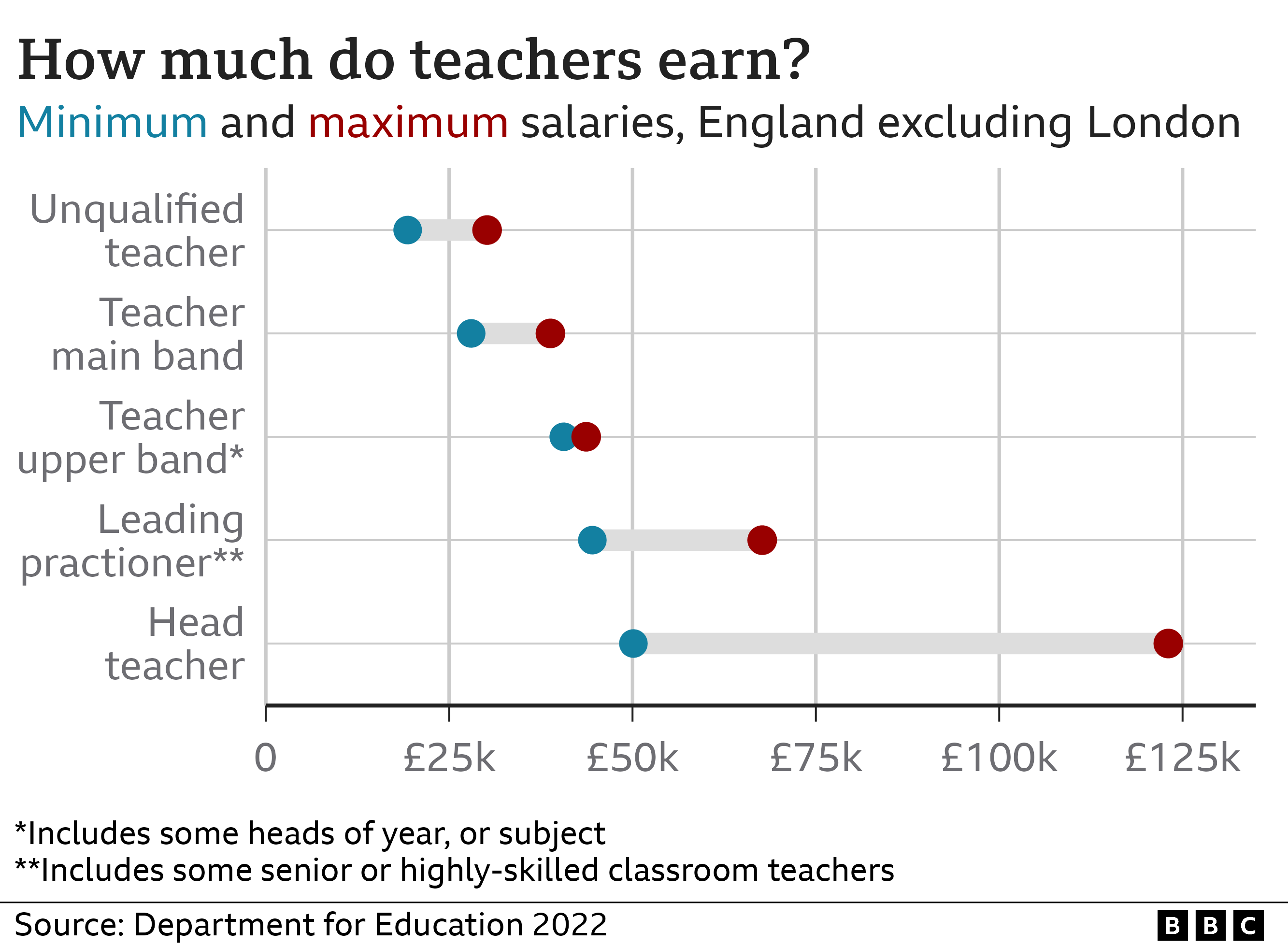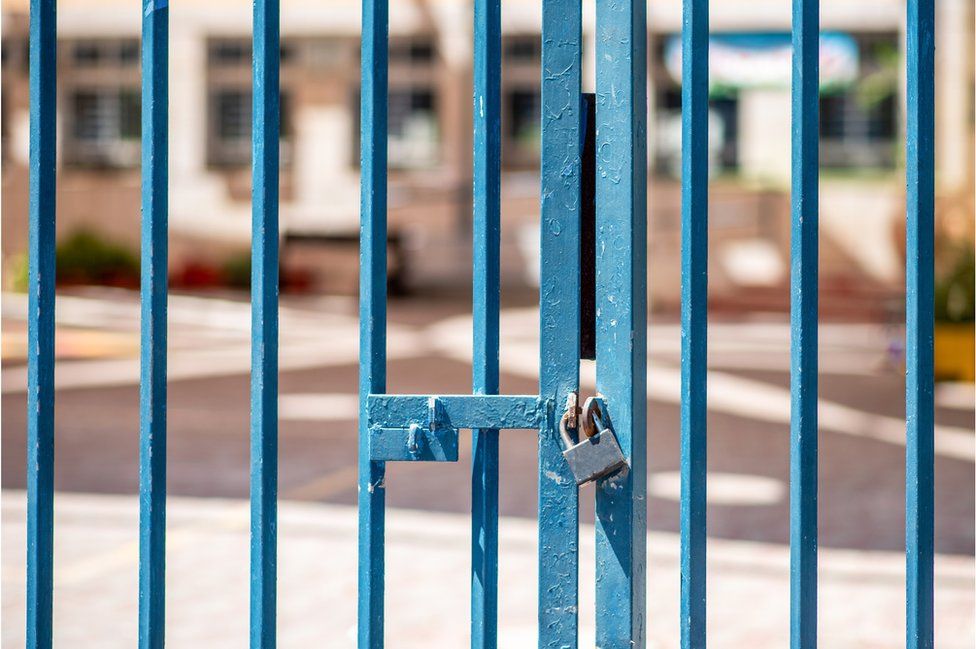Teachers’ strikes: What are they paid and will schools close?
Teachers in Scotland are striking on Thursday, closing most of the country’s schools.
Elsewhere in the UK, teachers are being asked if they also want to strike over pay.
What’s happening in Scotland?
Members of the Educational Institute of Scotland (EIS) and the Association of Head Teachers and Deputes Scotland (AHDS) have begun industrial action.
Most primary and secondary schools are closed, as are some early years learning centres and nurseries – click here for the latest from individual councils.
Many councils will issue a payment for children and young people entitled to free school meals.
On Sunday, the EIS – Scotland’s largest teaching union – said it was confident a new pay offer would be made to avert the strike.
But on Tuesday it dismissed a new pay offer as “insulting”, and confirmed the 24-hour walkout would go ahead.
Members of the Scottish Secondary Teachers’ Association (SSTA) are also planning to strike on either 7 or 8 December.
Why are teachers striking?
It’s about pay. In Scotland, teachers have rejected a 5% increase, arguing for 10%.
Most state-school teachers in England and Wales had a 5% rise this year. In Northern Ireland many teachers have been offered 3.2% over the past two years.
Unions argue that inflation above 11% means these increases are really pay cuts. Thousands of workers in other sectors are striking for the same reason.
Teachers’ representatives also want schools to be given extra money to cover the increase.
How much do teachers get paid?
The starting salary for teachers in England is due to rise to £30,000 a year by September 2023.
In the last school year, state school classroom teachers in England were paid an average of £38,982. This compares with £39,009 in Wales and £40,026 in Scotland. Northern Ireland’s government did not provide an equivalent figure.
The average head teacher’s salary in England last year was £74,095. For other senior leadership, it was £57,117.

Experts in England advise the government about teacher pay, based on vacancies, shortages in individual subjects, and the competition from other graduate jobs.
As with all extra public spending, money allocated to England determines what funding is awarded to Scotland, Wales and Northern Ireland.
When will we know if more strikes will go ahead?
Teachers from five unions in Northern Ireland have already begun action short of a strike – affecting school meetings and administrative tasks.
NEU members who teach at sixth form colleges in England will strike on 30 November.
Other ballots are still open:
- The NASUWT ballot, covering staff in schools and sixth form colleges in England, Scotland, and Wales, closes on 9 January
- The NEU is the largest education union in the UK, with 300,000 members in England and Wales, although not all are teachers. Its ballot closes on 13 January
- The NAHT union, representing head teachers and other school leaders in England and Wales, is balloting members, but no closing date has been announced
- The NEU says it may co-ordinate action with the NASUWT and NAHT
- The ASCL, representing school and college leaders, wants a “fully-funded pay increase”, but isn’t currently planning a formal ballot
Elsewhere in the education world, lecturers and other university staff will strike over pay, pensions and working conditions on 24, 25 and 30 November.

Will schools close if teachers strike?
In Scotland, local councils decide.
In England, it’s generally up to head teachers. There are no minimum staffing rules, so heads have to judge whether staying open is possible.
Head teachers are also responsible in Wales, in consultation with local authorities.
If my child’s school closes, can I get time off work?
You have the right to take time off work to help a dependant – such as your child – if normal arrangements are disrupted.
But you won’t necessarily get paid under this rule, which applies to England, Scotland and Wales.
The Department for Business advises carers to check with their employer for more specific guidance.
It may also be possible to have unpaid parental leave, but this needs to be arranged in advance, and usually taken in week-long blocks.
When have teachers previously gone on strike?
In 2008, a one-day walkout by teachers over pay closed one in ten schools in England and Wales.
Millions of children across the UK missed classes in 2011 when thousands of schools closed due to a one-day strike over pensions.
Teachers in England went on strike in 2014 over pay, pensions and conditions, and again in 2016 over funding, pay and workloads.
Correction 16 November: An earlier version of this article was amended to make it clear that teachers in Scotland have not accepted or received the 5% rise they have been offered.
Source: BBC.COM



